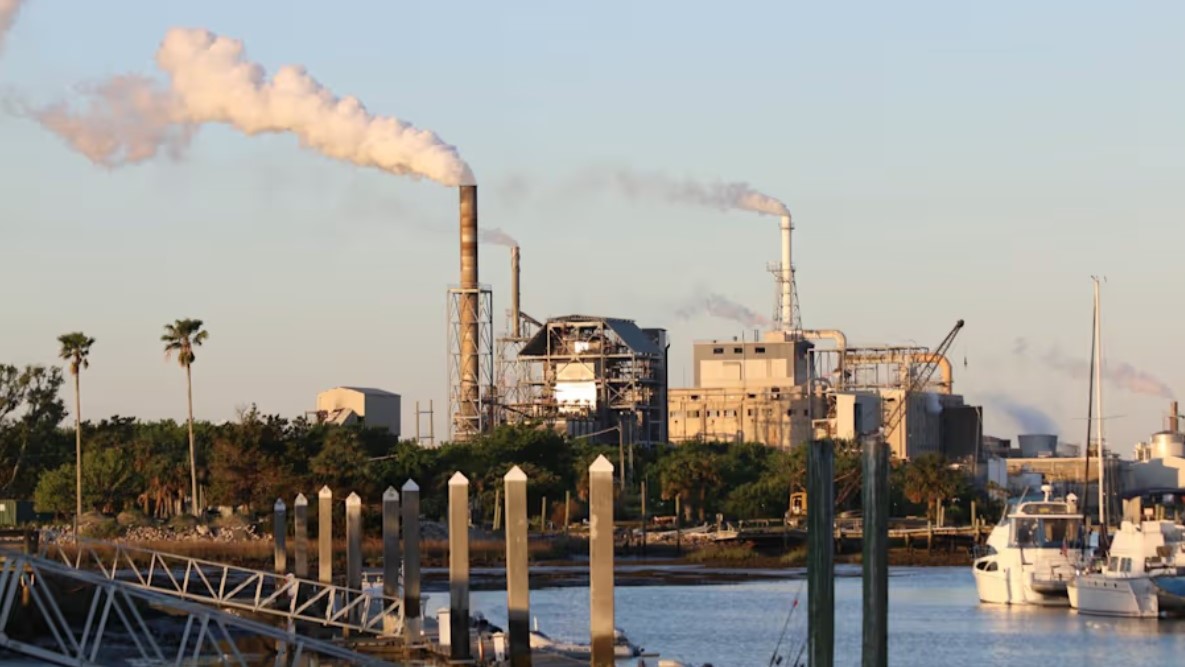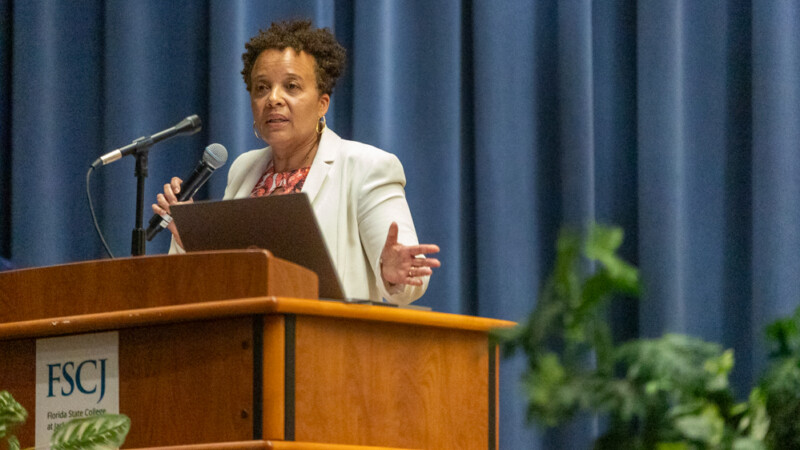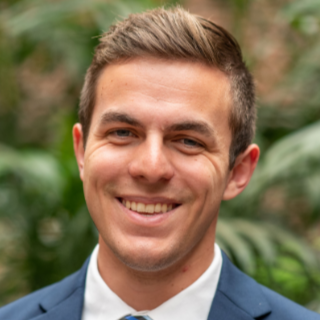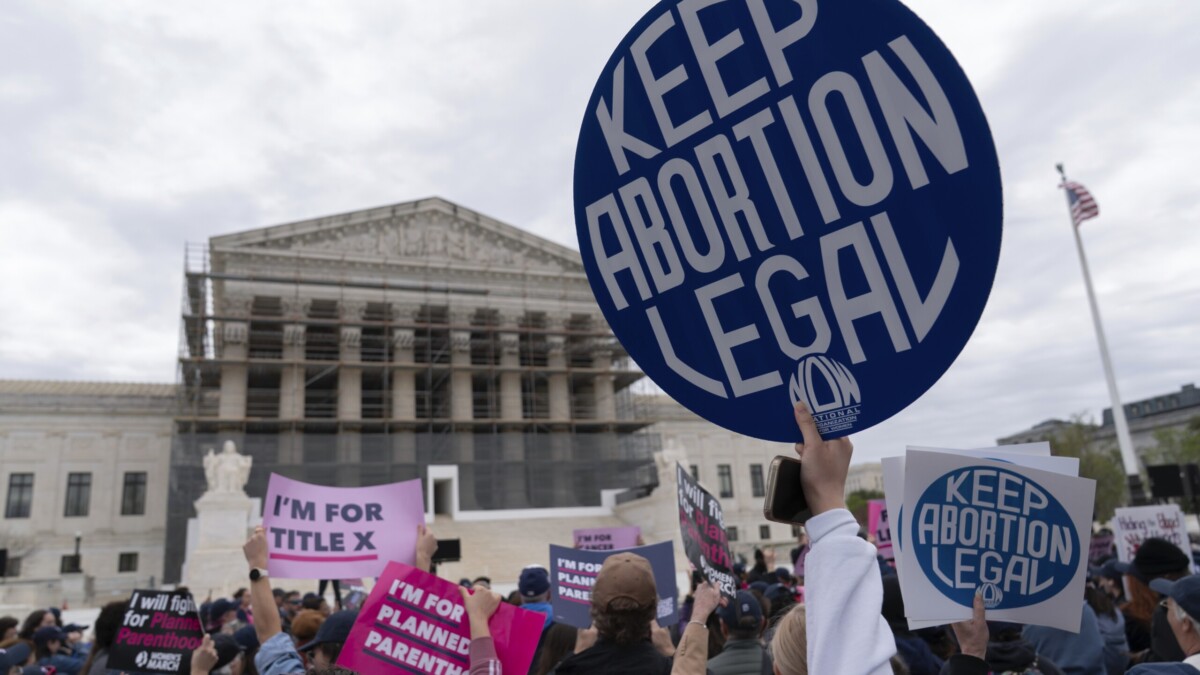The city of Fernandina Beach is bracing for a legal showdown with Rayonier Advanced Materials, which runs a pulp mill in the city.
RYAM, or Rayonier Performance Fibers, has filed a federal lawsuit alleging unfair treatment after Fernandina Beach rejected its plans for a new bioethanol facility.
RYAM says the city didn’t follow proper procedures and misclassified its project, blocking it from moving forward.
The Fernandina Beach City Commission has passed a resolution to defend the city in court and is denying all claims by RYAM.
RYAM’s pulp mill in Fernandina Beach transforms wood into fibers used in everyday products like paper, tissues and even clothing.
In December, the company proposed a plan to convert some of the waste from its operations into bioethanol, a renewable fuel. But the city denied the proposal, citing concerns over potential health risks for residents.
The city also argued that the project didn’t meet local zoning rules, labeling it as chemical manufacturing instead of a pulp operation.
RYAM claims the city misinterpreted the project and did not follow the appropriate review process.
Now, the company is taking legal action, asking the court to overturn the city’s decision.
The city says it stands by its decision and has the legal funding and insurance coverage to handle the lawsuit.
So far, no court date has been set.
Bioethanol legislation
Along with a looming legal battle, there is a bill being considered in the Florida Senate that could reopen the door for RYAM’s bioethanol plant.
The bill, SB 1118, which is still in committee, has had an amendment added that reads: “The production of ethanol from plants and plant products as defined in s. 581.011 by fermentation, distillation, and drying is not chemical manufacturing or chemical refining. This subsection is remedial and clarifying in nature and applies retroactively to any law, regulation, or ordinance or any interpretation thereof.”
The city’s comprehensive plan currently states “chemical or petroleum manufacturing or refining, rubber or plastics manufacturing, or other uses generating potentially harmful environmental or nuisance impacts shall be prohibited.”
If the bill passes as is, a bioethanol plant which uses “fermentation, distillation, and drying,” would no longer be considered “chemical manufacturing or chemical refining.”
Sen. Stan McClain, who represents Marion, Levy, and part of Alachua counties, introduced the bill, saying the goal of it is to address the influx of people moving to Florida and tweak the local development process.
“We have an inconsistent application of the laws we currently have,” McClain said. “One day, we’re approving development. The next day, we try and stop development, and that’s not consistent.”
Tom Budd, the president of Fernandina Wins, which also operates as No Ethanol Fernandina, voiced his opinion against the bill.
“This proposal completely destroys local control of zoning, and it is a precedent that should upset every single community in the state of Florida,” Budd said. “It’s like the legislature is going to say, ‘The argument’s over. We’re ordering that Fernandina Beach loses in their argument and they have no control over their own zoning in this case.’”
This story was produced by News4Jax, a Jacksonville Today news partner.









